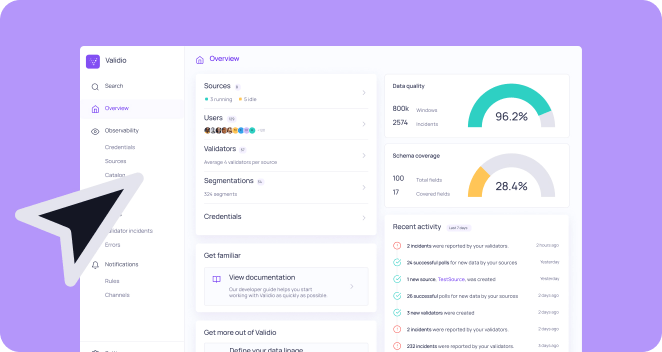Why are data catalogs important for your data quality?
At its core, a data catalog is an inventory of all the data you own or use in an organization. It collects and organizes metadata (data about your data) for all your data assets (such as tables or streams). This brings multiple benefits:
- Get insights into your data assets, such as ownership, popularity, and utilization
- Easily discover data assets with global search and filtering, and see who to contact when issues occur
- Understand downstream impact of issues using detailed lineage and traceability
- Collaborate and share data with other users and stakeholders, breaking free from data silos
- Facilitate regulatory compliance, such as EU AI Act regulations or financial regulations like BCBS 239, by improving data quality and data governance.
Many companies treat all data assets as if they are equally important, but as little as 10% are generally driving business value. By using data catalogs to understand what data assets are important for the business, companies can validate and improve the data that matters, while managing and optimizing data usage and storage to save costs. It doesn't make sense to have extensive data validation in place for unused data.
Prioritizing your data is critical to delivering business value
A well-operated data catalog with metrics for utilization, validation coverage, and compliance adherence, makes it much easier to identify what data assets are valuable for your business. Then you will know where to set up deep data validation to catch both loud and silent data issues.
By setting up sufficient validation for your most valuable data assets, it enables disparate users and stakeholders to collaborate more closely when resolving issues and improving data quality. Then you are able to maintain an efficient Data Trust Workflow across your organization, as illustrated below.
The data prioritization flywheel
- Prioritize among your data assets (i.e. you must know what data to prioritize)
- Validate your most critical data with deep and automated tests
- Improve data quality through extensive resolution and close collaboration






